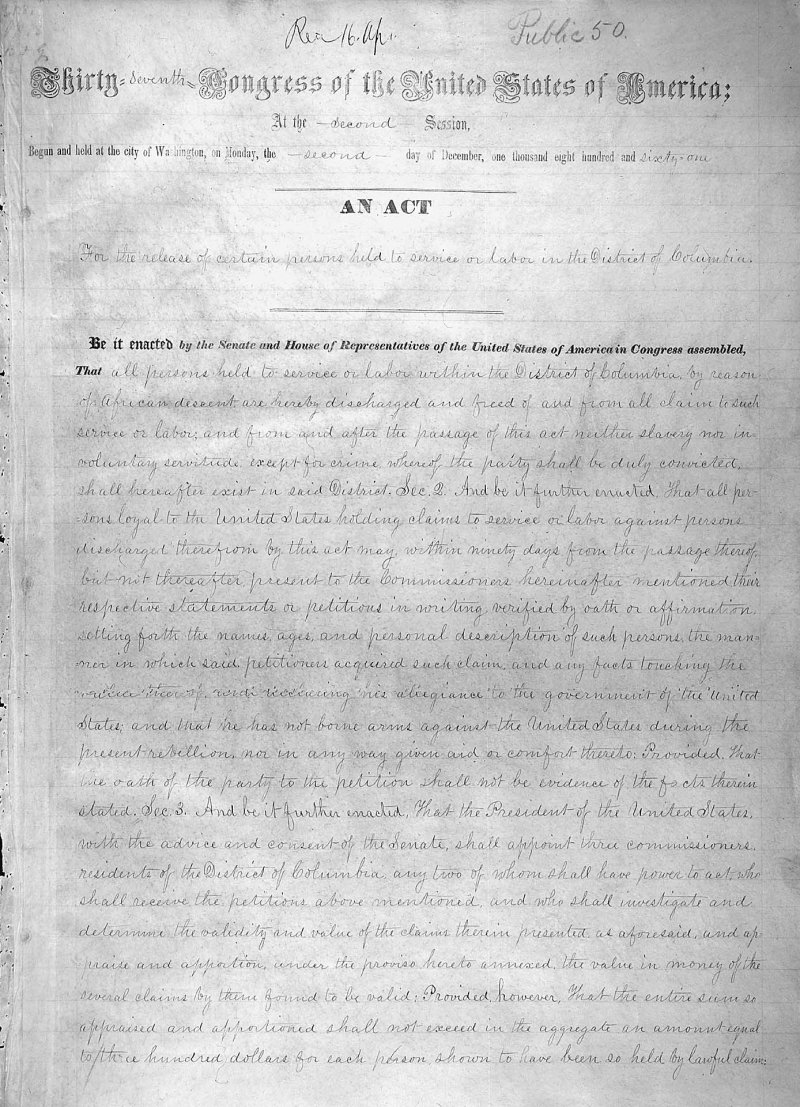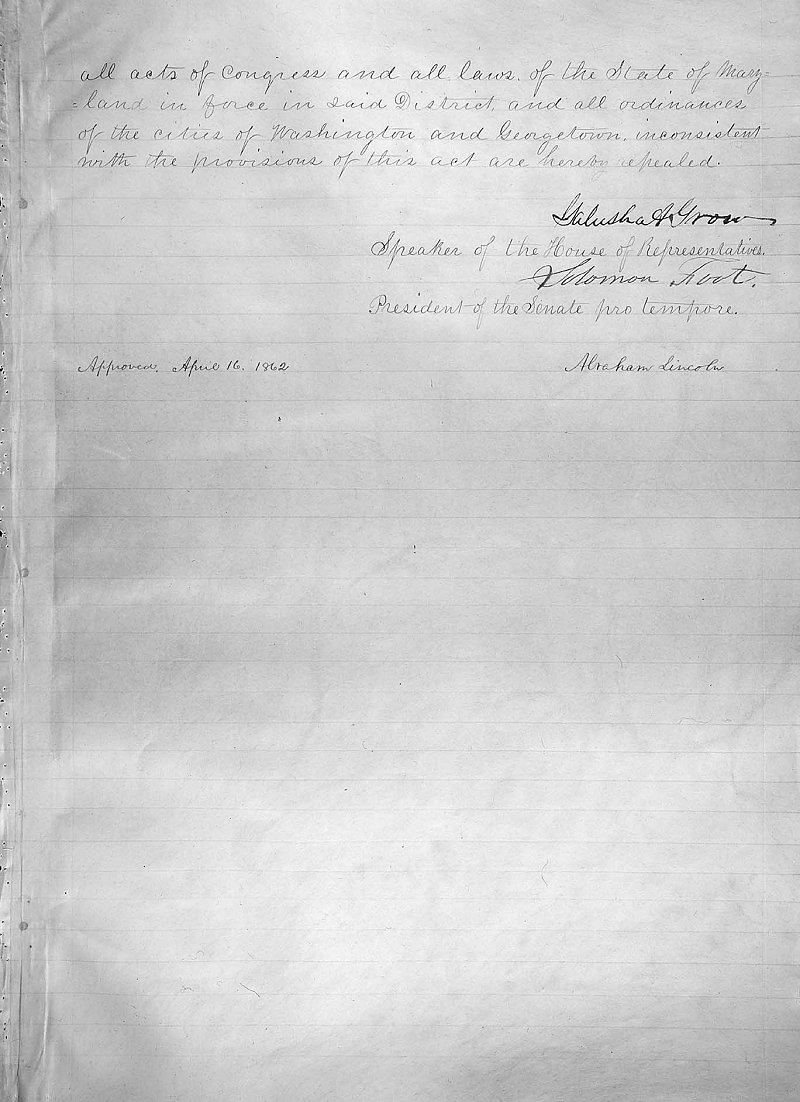
Date Created:
Place Created: Washington DC
Year Created: 1862
Historical Theme:
Description: President Lincoln ended slavery in D.C, 8 1/2 months before he would end slavery nationwide. Former owners who remained loyal to the union were paid for each enslaved freed.
Categories of Documents:
On April 16, 1862, President Abraham Lincoln signed a bill ending slavery in the District of Columbia. Passage of this law came 8 1/2 months before President Lincoln issued his Emancipation Proclamation. The act brought to a conclusion decades of agitation aimed at ending what antislavery advocates called "the national shame" of slavery in the nation's capital. It provided for immediate emancipation, compensation to former owners who were loyal to the Union of up to $300 for each freed slave, voluntary colonization of former slaves to locations outside the United States, and payments of up to $100 for each person choosing emigration. Over the next 9 months, the Board of Commissioners appointed to administer the act approved 930 petitions, completely or in part, from former owners for the freedom of 2,989 former slaves.
Although its combination of emancipation, compensation to owners, and colonization did not serve as a model for the future, the District of Columbia Emancipation Act was an early signal of slavery's death. In the District itself, African Americans greeted emancipation with great jubilation. For many years afterward, they celebrated Emancipation Day on April 16 with parades and festivals.

An Act for the Release of certain Persons held to Service or Labor in the District of Columbia
Be it enacted . . . , That all persons held to service or labor within the District of Columbia by reason of African descent are hereby discharged and freed of and from all claim to such service or labor; and from and after the passage of this act neither slavery nor involuntary servitude, except for crime, whereof the party shall be duly convicted, shall hereafter exist in said District.
Sec. 2. And be it further enacted, That all persons loyal to the United States, holding claims to service or labor against persons discharged therefrom by this act, may, within ninety days from the passage thereof, but not thereafter, present to the commissioners hereinafter mentioned their respective statements or petitions in writing, verified by oath or affirmation, setting forth the names, ages, and personal description of such persons…and declaring his allegiance to the Government of the United States, and that he has not borne arms against the United States during the present rebellion, nor in any way given aid or comfort thereto….
Sec. 3. And be it further enacted, That the President of the United States, with the advice and consent of the Senate, shall appoint three commissioners, residents of the District of Columbia, any two of whom shall have power to act, who shall receive the petitions above mentioned, and who shall investigate and determine the validity and value of the claims therein presented, as aforesaid, and appraise and apportion, under the proviso hereto annexed, the value in money of the several claims by them found to be valid….
Sec. 8. And be it further enacted, That any person or persons who shall kidnap, or in any manner transport or procure to be taken out of said District, any person or persons discharged and freed by the provisions of this act, or any free person or persons with intent to re-enslave or sell such person or person into slavery, or shall re-enslave any of said freed persons, the person of persons so offending shall be deemed guilty of a felony….
Sec. 11. And be it further enacted, That the sum of one hundred thousand dollars . . .is hereby appropriated…to aid in the colonization and settlement of such free persons of African descent now residing in said District, including those to be liberated by this act, as may desire to emigrate to the Republics of Hayti or Liberia, or such other country beyond the limits of the United States as the President may determine….

